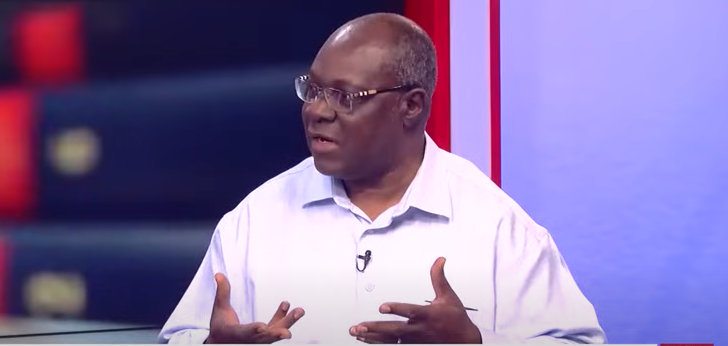Dr. Arthur Kennedy, a physician and political activist, has expressed strong criticism regarding the negligence of Ghana’s major political parties in effectively addressing the rampant issue of illegal mining, known locally as galamsey. During a recent appearance on Joy News on October 19, 2024, he highlighted that the reluctance from these political entities to take a firm stand against illegal mining stems from the personal interests many politicians have in the activity. Dr. Kennedy emphasized that the involvement of influential political figures, including Members of Parliament and their associates, in the funding and execution of illegal mining operations significantly undermines efforts to combat this crisis. This complex relationship between politics and illegal mining poses a considerable barrier to enacting meaningful reforms, which urgently needs to be addressed to safeguard Ghana’s environment and natural resources.
Illegal mining has emerged as a significant challenge for Ghana, eliciting rampant destruction of vital resources, such as water bodies, land, and forest reserves. Various groups, civil societies, and associations have raised alarms, calling for immediate government intervention to mitigate these adverse effects. The devastation from illegal mining not only threatens the ecological balance but also impacts communities that rely on these resources for their livelihoods. Dr. Kennedy’s concerns align with a broader public sentiment that calls for decisive action from the government and prompts a reevaluation of how illegal activities in the mining sector are handled by those in power.
In his conversation, Dr. Kennedy made a notable plea to Asantehene Otumfuo Osei Tutu II, urging him to communicate with the key political parties to facilitate a more effective and extraordinary approach to tackle the illegal mining crisis. By leveraging the Asantehene’s authority and influence, he hopes to create a platform where constructive discussions can lead to actionable solutions. Dr. Kennedy believes that the involvement of traditional leadership could help bridge the gap between political inertia and the urgent need for change. His initiative reflects a pattern of seeking collaborative solutions that involve diverse stakeholders, which is crucial for addressing multifaceted issues like illegal mining.
The physician further articulated that overcoming the galamsey crisis requires unyielding political will and a genuine commitment from all stakeholders involved. He strongly argues that without addressing the core issue of political complicity in illegal mining operations, any efforts to mitigate the crisis will likely be futile. Dr. Kennedy insisted on the necessity of identifying and prosecuting those who facilitate illegal mining, including those in higher political offices, stating that the problem cannot be resolved merely through surface-level measures. This grassroots approach towards tackling illegal mining aligns with best practices in environmental governance but raises uncomfortable questions about accountability and ethics in Ghana’s political landscape.
Dr. Kennedy’s remarks underscore the need for extraordinary measures to address illegal mining, as he believes that traditional approaches have failed to yield significant results. Highlighting a sense of urgency, he pointed out that merely discussing the issue is not sufficient; decisive action is imperative. He called for a thorough investigation into the funding and operations behind illegal mining activities, emphasizing that the involvement of political elites in illegal mining only prolongs the crisis. It is crucial for political parties to confront their complicity and to establish stringent regulations that will hold violators accountable, thereby dismantling the networks that facilitate illegal mining.
In summary, Dr. Arthur Kennedy’s commentary sheds light on the intricate interplay between politics and illegal mining in Ghana. His assessment suggests that without robust interventions and the political will to confront these illegal activities at their roots, the ongoing devastation caused by galamsey will persist. The intersection of ecological sustainability, political responsibility, and civic involvement paints a complex portrait of Ghana’s struggle with illegal mining. His appeals for engagement with traditional leadership and urgent action reflect a broader call for collective responsibility and accountability needed to navigate these environmental and political challenges.














